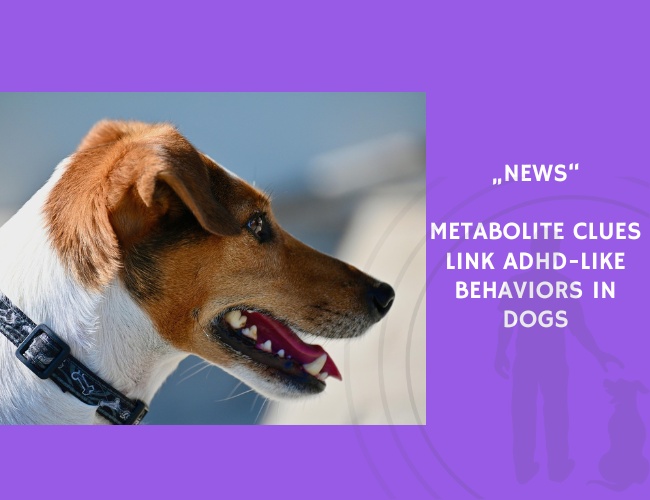Attention deficit hyperactivity disorder (ADHD) is one of the most studied neuropsychiatric disorders in humans, yet its biological underpinnings remain complex. Dogs, which can display hyperactivity and impulsivity, provide a valuable comparative model. In this pilot study, researchers examined whether metabolic biomarkers are associated with ADHD-like behaviors in canines.
The study analyzed plasma samples from 22 German Shepherds that had been kept on a controlled diet for two weeks before testing. Using LC–MS-based non-targeted metabolite profiling, the researchers identified 649 molecular features correlated with ADHD-like behavior scores. Among these, three phospholipids — sn-1 LysoPC(18:3), PC(18:3/18:2), and sn-1 LysoPE(18:2) — showed significant correlations even after correction for false discovery rate.
Interestingly, phospholipids were negatively correlated with ADHD-like behaviors, while tryptophan metabolites showed a split pattern: 3-indolepropionic acid (IPA) correlated negatively, whereas kynurenic acid (KYNA) correlated positively with hyperactivity and impulsivity scores. These findings suggest that disruptions in lipid metabolism and tryptophan pathways may contribute to ADHD-like traits in dogs.
The authors highlight the similarity of these results to earlier findings in human and rodent ADHD models. While preliminary, the study points toward potential biomarker candidates for future research and opens avenues for improved diagnostics and treatments for canine behavioral disorders — with possible translational value for human ADHD research.
Source: Puurunen, J., Sulkama, S., Tiira, K., Araújo, C., Lehtonen, M., Hanhineva, K., & Lohi, H. (2016). A non-targeted metabolite profiling pilot study suggests that tryptophan and lipid metabolisms are linked with ADHD-like behaviours in dogs. Behavioral and Brain Functions, 12. Publication Date: September 29, 2016. References: 75. Citations: 36.










